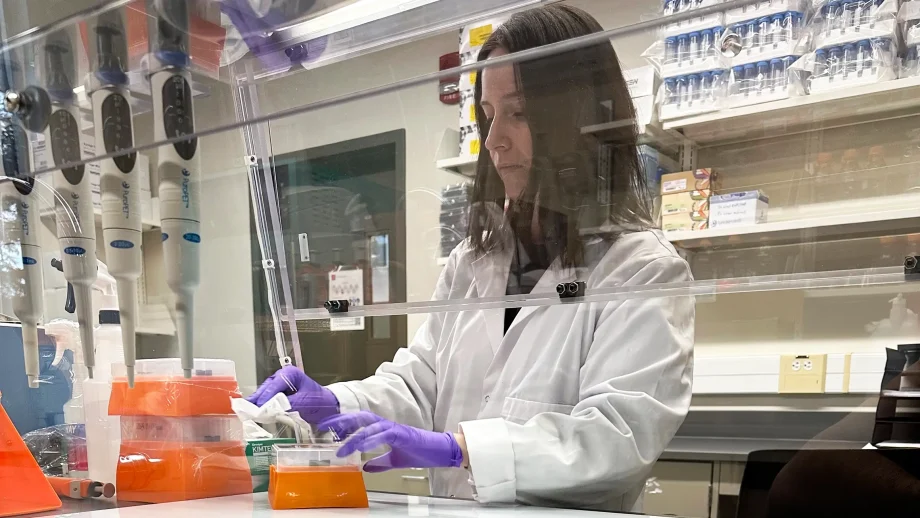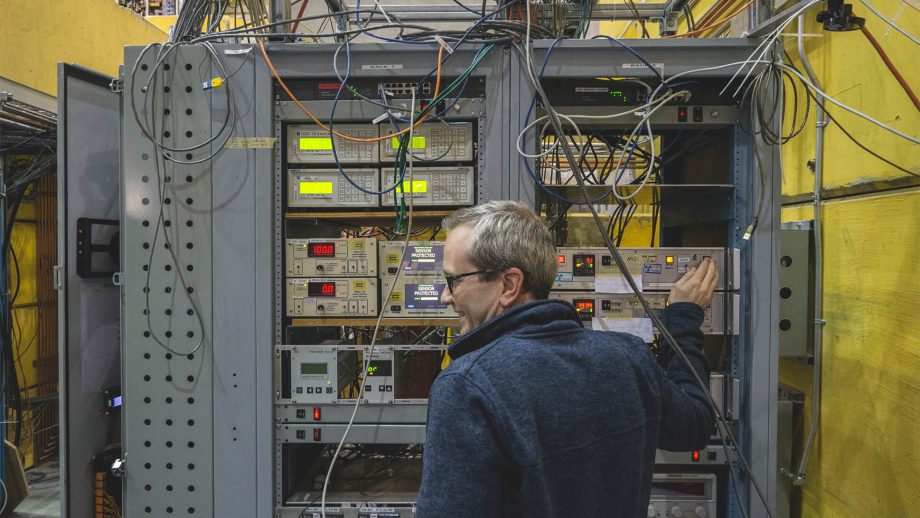Research at UWinnipeg could lead to new diagnostics and therapeutics for cancer, including a potential treatment for highly invasive breast cancer.
Biology professor, Dr. Anuraag Shrivastav, has identified a protein that is responsible for turning a primary cancer into a metastatic cancer.
We believe that this would change the way highly invasive, or metastatic, cancers are treated.
Dr. Anuraag Shrivastav
“A primary tumor is where it is kind of restricted in a particular tissue type or organ,” Dr. Shrivastav explained. “If it is restricted in a particular tissue or in an organ, you can remove it with surgery followed by radiation therapy. Once it becomes metastatic, it starts to spread into other organs or other tissues, and that’s where it gets highly invasive and difficult to treat.”
Dr. Shrivastav hopes by identifying this target protein, which is the driver of metastasis, that a drug could be developed to treat these kinds of cancers, starting with triple negative breast cancer.
“We see this target present in 70 per cent of triple negative breast cancer cases, which is huge,” Dr. Shrivastav said. “Now we have a new therapeutic target that we can go after. And if you’re able to develop, say, small molecules as a drug candidate, then we are basically embarking on a journey to develop a drug for hard-to-treat cancers like triple negative breast cancer.”
Dr. Shrivastav said there are currently no targeted therapies for triple negative breast cancer, so patients must rely on systemic therapies, like chemotherapy, which have their side effects.
“We believe that this would change the way highly invasive, or metastatic, cancers are treated,” Dr. Shrivastav said. “If we can come up with a targeted therapy for triple negative breast cancer, it would be especially beneficial for patients where the prognosis is not good. This cancer often affects younger women, especially of colour, and if we can improve their prognosis that would be fantastic.”
Dr. Shrivastav’s research has additional potential for prognostic and predictive diagnostics in the area of breast cancer. His research could let patients know how likely their breast cancer is to recur, right at the time of diagnosis.
“You don’t have to wait for, say, two to five years and the cancer has recurred,” Dr. Shrivastav explained. “If you know at the very onset, at the very beginning, clinicians or oncologists can think of monitoring patients more often, as well as better treatment regimens, in view of the likelihood of recurrence.”
“One of our prognostic tests can tell how invasive that cancer type is going to be,” he added. “So, we can actually predict the prognosis. If you can predict the prognosis you can think of different treatment modalities, hence improving the prognosis.”
Dr. Shrivastav’s discoveries are the culmination of more than two decades of research work in cancer. He is also making significant contributions to research in thyroid cancer and colorectal cancer.
“The real motivation to really push this work has come from my own life experience, where my grandmother was diagnosed with lung cancer,” he said. “I know everyone is touched one way or another by this disease. And despite all the advancements, we are still working to find better treatment regimens, better treatment modalities, and better diagnostics. That motivates me every day to come to UWinnipeg and really work.”





